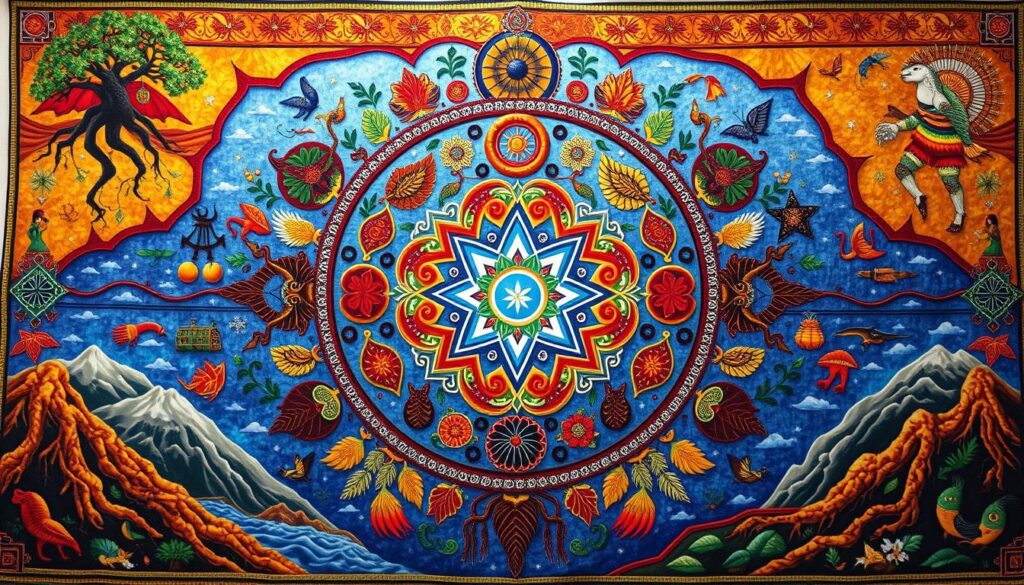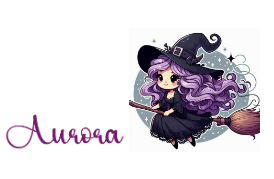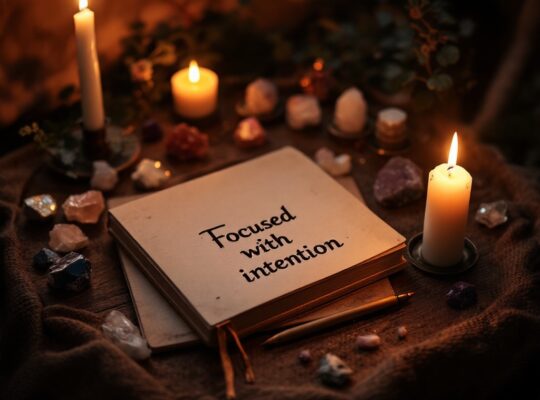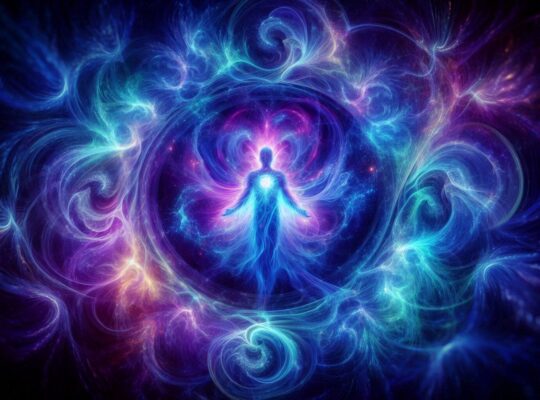Thinking about my family’s past, I see how my ancestors’ experiences have influenced me. Growing up, I felt a deep pain and strength in my family. These stories, both good and bad, were part of our history. It wasn’t until I learned about ancestral healing that I grasped the importance of these connections.
Ancestral healing is a way to deal with family trauma, based on epigenetics. It helps us understand and let go of the emotional baggage passed down through generations. This lets us connect with our ancestors’ wisdom and break free from harmful patterns. It’s not just good for us, but can also heal our family’s collective wounds.
Key Takeaways
- Ancestral healing is a powerful approach to addressing family trauma, rooted in the science of epigenetics.
- Emotional patterns and traumas can be passed down through generations, profoundly shaping our lives.
- Releasing inherited traumas can lead to healing for both the individual and their ancestors and descendants.
- Ancestral healing emphasizes the importance of current actions in shaping the future impact on family lineages.
- Ancestral worship reflects a respect for wisdom and acknowledging the humanity within ancestral experiences.
Understanding Intergenerational Trauma and Its Impact
Trauma can affect us for generations, shaping our lives in deep ways. This field looks at how pain and hard times can be passed down. It shows up in our health, feelings, and actions.
The Science Behind Trauma Transmission
Studies in epigenetics, neuroscience, and language are uncovering how trauma is shared. Hard times can change how genes work, making us more likely to face issues like PTSD and depression.
How Trauma Manifests Across Generations
Trauma can affect us in many ways, from our bodies to our minds. Things like inherited emotions and feelings from before birth can shape our lives. We might not even know it’s happening.
Identifying Family Patterns and Cycles
It’s important to see the patterns in our families to understand our struggles. By listening to our family’s stories, we can find out what’s been influencing us. This can lead to deep healing.
“Trauma doesn’t just live in our memories – it lives in our bodies, our genes, and our everyday lives.”
As we learn more about intergenerational trauma, we see that our family’s past is key to our future. By understanding this, we can start to heal and grow. We can build a better future for ourselves and our families.
The Role of Epigenetics in Family Trauma
Research in epigenetics shows how trauma can be passed down through generations. Epigenetics studies changes in genes that don’t change the DNA itself. It shows how stress or trauma can affect our cells, impacting future generations.
Studies have found that trauma can be passed from parents to children, even if the children weren’t directly exposed. For example, kids of Holocaust survivors and Yom Kippur War veterans often have PTSD and mood disorders. Maternal PTSD is a big factor.
Children of women who experienced 9/11 while pregnant also show signs of stress. They have low cortisol levels, like their mothers. This shows that trauma can be passed down through generations, affecting future generations’ health.
Twin studies show that PTSD has a genetic component, with 30% to 70% heritability. This means genetics and epigenetics play a big role in trauma passing down. Stress in parents can also lead to health issues in their kids, like obesity and diabetes.
Understanding these patterns is key. It helps us see how trauma is passed down and how we can heal. By recognizing this, we can work towards better ways to heal and grow stronger.
Exploring epigenetics and trauma brings both challenges and opportunities. We need to learn more about these patterns. We also need to find ways to use positive environments and resilience to help future generations.
Ancestral Connections and Emotional Legacy
Looking into our ancestral ties can reveal deep insights into our emotional patterns and legacies. Inherited emotional wounds, such as feelings of worthlessness, despair, or creative insecurity, often become part of our family’s emotional blueprint. By recognizing and understanding these patterns, we can start to break free from cycles that have long influenced our lives and relationships.
Inherited Emotional Patterns
Our ancestors’ emotional experiences, both good and bad, deeply affect our emotional landscape. Indigenous societies honor their ancestors, knowing our existence is shaped by those who came before us. Through ancestral healing, we can uncover the emotional imprints from our family line, showing how these patterns show up in our lives.
Understanding Your Family’s Emotional Blueprint
Ancestral healing explores our stories, beliefs, and traumas passed down, focusing on emotional legacies across generations. By diving into our family’s history and understanding our ancestors’ emotional landscapes, we gain insight into our own emotional blueprint. Reflecting on our family’s past is key to starting the journey of ancestral healing.
Breaking Generational Cycles
Unresolved trauma and unhealed wounds from ancestors can lead to dysfunction and disconnection in us, showing why addressing these emotional legacies is crucial for our well-being. Through storytelling, rituals, meditation, and reconnecting with our culture, we can actively seek ancestral healing. This process helps us release generational wounds and find our emotional freedom.
“Ancestral healing work is seen as social justice activism, offering an opportunity to correct historical imbalances and envision a better future.”
| Ancestral Healing Practices | Benefits |
|---|---|
| Creating ofrenda altars | Acts of radical self-care and self-love, connecting individuals to their lineage and offering healing in both directions |
| Engaging in formal rituals | Fosters a deeper spiritual understanding, reconnecting individuals with nature and their ancestors |
By embracing our ancestral connections and exploring the emotional legacies that have shaped our lives, we can break free from generational cycles and reclaim our emotional well-being. This journey of self-discovery and healing not only transforms our personal lives but also has the potential to positively impact our communities and the world around us.
Family Systems Theory and Healing
Family systems theory helps us see how we relate to each other in our families. Each person has a role, like the scapegoat or the caregiver, and these roles often repeat in families. Knowing these patterns can help us find and change unhealthy cycles.
Studies show that knowing your family history helps manage stress. Kids who understand their family history feel better about themselves and are happier. This shows that learning about your family can greatly improve your and your family’s well-being.
Healing involves recognizing your role in the family and changing bad patterns. This can improve the whole family, even if you don’t talk to other family members. Family traditions are also key, linking past stories to today’s life.
Therapy that looks at family patterns can reveal a lot about symptoms and barriers. It helps us understand our family’s emotional blueprint and break free from bad cycles.
| Family Systems Theory and Healing |
|---|
| Examines how individuals relate to each other within a family constellationIdentifies patterns and roles that may be repeated across generationsRecognizing one’s role in the family system can lead to positive changesExplores the impact of ancestral knowledge and family traditions on personal and familial well-beingTherapeutic interventions can provide insight into intergenerational patterns and barriers to life goals |
Family systems theory uncovers the hidden forces that shape our lives and relationships. By understanding these patterns, we can heal ourselves and our families. We can move towards a more empowered and fulfilling future.
“Therapeutic interventions that explore intergenerational patterns can provide insight into symptoms, diagnoses, and invisible barriers to life goals.”
Research shows that family health is key to overcoming childhood trauma. Positive childhood experiences in parents lead to better family health. This health is linked to fewer negative experiences for their kids. This highlights the importance of family systems in shaping future generations’ well-being.
Exploring family systems theory helps us understand our ancestral patterns. This journey of healing can transform our families and us. This approach to wellness can help break trauma cycles and empower families to build a brighter future.
Healing Family Trauma: The Importance of Ancestral Connections
Healing family trauma means seeing the wisdom and strength passed down with the pain. We build bridges to the past and create rituals to honor our ancestors. This way, we can heal past wounds and build a brighter future.
Recognizing Ancestral Wisdom
Ancestral wisdom is key to deeper healing. By connecting with our lineage, we find tools for personal growth. This might include journey work and rituals that bring our ancestors’ wisdom into our lives.
Building Bridges to the Past
Healing family trauma means honoring our ancestors and understanding their impact on us. We explore our family history and engage in healing rituals. This helps us break free from trauma passed down through generations.
Creating Healing Rituals
Creating rituals based on ancestral wisdom helps us release negative patterns. These rituals can include elemental connections and somatic work. By honoring our ancestors, we open new paths to healing and growth.
“Healing ancestral wounds is the key to creating a better future for ourselves and our descendants.”
Embracing our ancestral connections is a powerful journey. It leads us to personal and collective healing. By honoring our ancestors and creating meaningful rituals, we can overcome inherited trauma and reach our full potential.
The Power of Family Constellations Work
Family constellations work is a powerful therapy that uncovers and heals deep family wounds. It lets us see and change our family’s dynamics. This gives us deep insights into hidden loyalties, unresolved conflicts, and generational traumas.
This therapy believes we’re connected to our ancestors. It shows how family patterns and energies shape our lives. Through it, we can find the love and strength in our family. We start to break free from the pain passed down through generations.
In family constellations, we create a physical family system. Participants play different family roles without knowing beforehand. This lets us tap into the “knowing field.” We gain a deeper understanding of our family’s dynamics.
This work helps us heal and find resolution naturally, without forcing it. It was developed by Bert Hellinger, a German psychotherapist. It combines family therapy, Zulu culture, and other disciplines for healing.
Through family constellations, we can heal deep father and mother wounds. It helps us break negative patterns, find self-love, and connect with our family and community.
“Family constellations work aims to help individuals move towards healing and resolution organically, without forcing change.”
The power of family constellations is in revealing our family’s hidden dynamics. It lets us access ancestral wisdom for healing. By understanding our place in the family, we can address alienation and distortion.
If you want to break free from family patterns, connect with your ancestry, or solve personal and relational issues, family constellations work is transformative.

Somatic Approaches to Ancestral Healing
Somatic healing focuses on releasing trauma stored in the body. It recognizes that our ancestors’ memories and traumas are in our bodies. By tapping into these, we can heal deeply and transform.
Body-Based Healing Techniques
Many body-based techniques help with ancestral trauma. These include breathwork, movement, and touch therapies. They help us feel our body’s sensations and release trapped energy.
By using our bodies, we can process emotional and energetic patterns passed down through generations.
Releasing Stored Trauma
Releasing trauma means being aware of our body and letting it guide us. Somatic meditation and embodied self-inquiry help us listen to our body. This lets us release ancestral burdens.
This release is freeing. It opens us to new possibilities by letting go of the past.
Integration Practices
It’s important to integrate the changes from somatic healing. Daily rituals, journaling, and movement help us keep these changes in our lives. This keeps us connected to our ancestors and their impact on us.
Using somatic healing can transform us and help us understand our ancestors better. It helps us find hidden gifts, release patterns, and connect with our family history.
“Ancestral healing work is a profound and powerful journey, one that allows us to reclaim the wisdom and resilience of our lineage. By tapping into the body’s innate intelligence, we can unlock the keys to true wholeness and belonging.”
| Technique | Description | Benefits |
|---|---|---|
| Breathwork | Conscious, controlled breathing patterns to release emotional and energetic blockages. | Increased self-awareness, emotional regulation, and access to subconscious material. |
| Movement Practices | Embodied practices like dance, yoga, and somatic movement to process and integrate trauma. | Greater body-mind connection, improved physical and emotional well-being, and enhanced self-expression. |
| Touch Therapies | Gentle, compassionate touch techniques to facilitate the release of stored trauma. | Increased feelings of safety, trust, and relaxation, leading to deeper healing. |
By using these somatic healing methods, we can unlock our lineage’s wisdom and resilience. This holistic healing empowers us to honor our family’s stories and lessons. It helps us find wholeness and belonging.
Cultural Identity and Ancestral Wounds
Exploring your cultural identity is key to healing from ancestral trauma. This is especially true for those with complex heritage or who have faced cultural oppression. It means reconnecting with lost traditions, healing from past hurts, and blending different ancestral backgrounds.
For some, DNA tests reveal unexpected ancestry. This can lead to feelings of “cultural dysmorphia.” Yet, it also opens up opportunities to honor and blend in new cultural roots.
Ancestral wounds deeply affect a person’s sense of self and emotional health. They can cause anxiety, depression, addiction, and trouble in relationships. These wounds also impact beliefs about worth, success, and how we express ourselves.
To heal these wounds, one must delve into their family history and the events that shaped their identity. Unaddressed trauma can cause fear, grief, and disconnection. It can even lead to physical issues like chronic pain and hormonal imbalances.
By reconnecting with their roots, people can start to overcome trauma and reclaim their identity. This might involve mindfulness, meditation, and other healing practices. These help process and release the trauma passed down through generations.

The journey of cultural identity and healing is deeply personal and transformative. By embracing their heritage and healing past wounds, individuals can find a deeper sense of self and empowerment.
Tools and Practices for Ancestral Connection
Exploring your ancestral roots can be a powerful way to heal family trauma. There are many tools and practices to help you connect with your lineage. These can unlock the wisdom and resilience of your ancestors.
Meditation is a great way to journey to the spiritual realms and connect with your ancestors. Pendulums can also boost your intuition and help you talk to your spirit guides.
- Breathe work and chakra clearing can release ancestral trauma and open you to healing energy.
- Setting up an ancestral altar with meaningful objects and photos is a way to honor and connect with your ancestors.
- Journaling helps track experiences and notice patterns in how your ancestors communicate with you.
Joining in cultural practices and rituals can deepen your understanding of your family’s spiritual legacy. It fosters a sense of belonging. Embracing your ancestors’ wisdom can lead to profound healing. It empowers you to break free from generational patterns and become a more resilient, authentic self.
“Connecting with my ancestors has been a profound and transformative experience. It has helped me understand my family’s emotional blueprint and find the resilience to break free from negative patterns.” – Carina Ponce, Ancestral Healing Coach
Ancestral healing changes lives and families for the better. It helps deal with past traumas and connects us to our ancestors. This way, we can make positive changes that last for generations.
This journey needs courage and dedication. Sometimes, getting help from experts is necessary. But the rewards are huge. You can understand yourself better, improve family ties, and feel closer to your culture and ancestors.
Embracing ancestral healing lets you heal yourself and stop the cycle of trauma. It’s key for personal growth and building a better world.
Until next time, may your healing journey be enlightening. Blessed Be.

FAQ
What is ancestral healing, and how can it help address family trauma?
Ancestral healing is a way to deal with family trauma. It’s based on the science of how genes are affected by our environment. It helps people connect with their ancestors and break cycles of trauma.
How can intergenerational trauma be transmitted through epigenetics?
Intergenerational trauma can pass through epigenetics, changing how genes work. This can lead to emotional patterns and stress vulnerabilities. Studies show that trauma can leave marks on chromosomes, making descendants more stressed.
What is the role of family systems theory in addressing ancestral wounds?
Family systems theory looks at family relationships and how they repeat over time. Healing means understanding our place in the family and changing bad patterns. This can change the whole family’s dynamics.
How can family constellations work help in addressing ancestral wounds?
Family constellations work is a therapy that changes family dynamics. It uses a physical setup to show family relationships. This helps reveal hidden issues and traumas, leading to healthier family patterns.
What are some somatic approaches to ancestral healing?
Somatic approaches focus on releasing trauma from the body. They recognize that our bodies hold ancestral memories. Techniques like breathwork and touch help release trauma and integrate it into daily life.
How can cultural identity and ancestral connections be explored as part of the healing process?
Exploring cultural identity is key in ancestral healing. It’s especially important for those with complex heritage or cultural wounds. Reconnecting with cultural practices and integrating diverse ancestry is part of this process.
What are some tools and practices that can facilitate ancestral connection and healing?
Many tools and practices help connect with ancestors and heal. Meditation, visiting ancestors, and energy healing are examples. Muscle testing, breathwork, and chakra clearing also aid in accessing and healing ancestral wounds.







